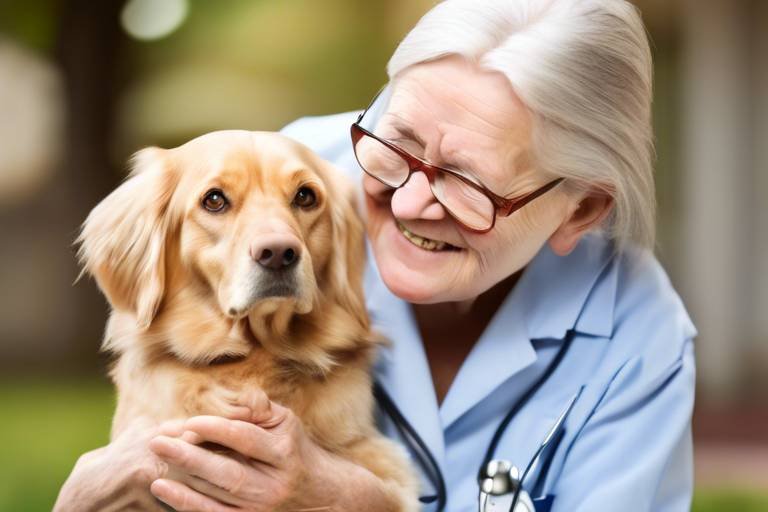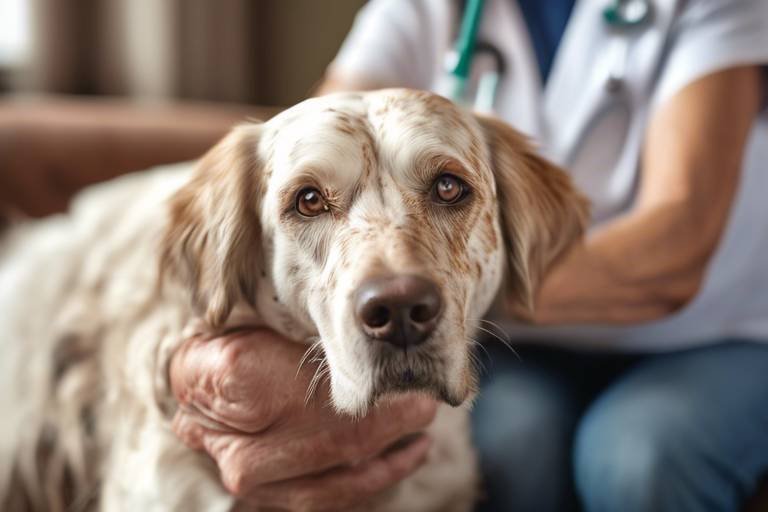Understanding Aging in Cats - Common Health Issues
As our beloved feline companions grow older, they undergo various changes that are not just a part of the natural aging process but can also signal potential health issues. It's a bit like watching a favorite movie for the tenth time; you notice details you might have missed before. Recognizing these changes early on can make all the difference in ensuring your cat lives a happy and healthy life in their golden years. Just like us, cats can face a multitude of health challenges as they age, and being aware of these can help you provide the best possible care.
So, what should you be looking out for? Well, aging in cats can manifest in several ways. You might notice that your once sprightly cat is now a bit more lethargic, or perhaps their grooming habits have changed. These signs are crucial indicators of their overall health. It's important to stay vigilant, as early detection of any issues can lead to more effective treatments. After all, wouldn't you want to catch a problem before it becomes a full-blown crisis?
In this article, we will delve into the most common health issues that affect older cats, such as arthritis, dental disease, and kidney problems. Understanding these conditions is essential, not only for recognizing symptoms but also for knowing when to seek veterinary assistance. Just like a well-oiled machine, each part of your cat's body works together to keep them healthy. When one part starts to falter, it can affect the whole system.
As we explore the various health concerns, we will also discuss prevention strategies and care techniques that can significantly enhance your cat's quality of life. Think of it as a toolkit for cat care; the more tools you have at your disposal, the better equipped you'll be to handle any challenges that come your way. From dietary adjustments to regular check-ups, proactive measures can make a world of difference.
Ultimately, the goal is to ensure that your feline friend enjoys their senior years with comfort and joy. By understanding the signs of aging and the common health issues that may arise, you can become a more informed and proactive pet owner. Just remember, your cat relies on you to be their advocate, so stay alert and engaged with their health needs!
- What are the first signs of aging in cats? Changes in behavior, mobility, and grooming habits are often the first signs.
- How can I help my aging cat? Regular vet check-ups, a balanced diet, and keeping them active can help.
- What should I do if I notice changes in my cat's behavior? Consult your veterinarian as soon as possible for advice and potential treatments.
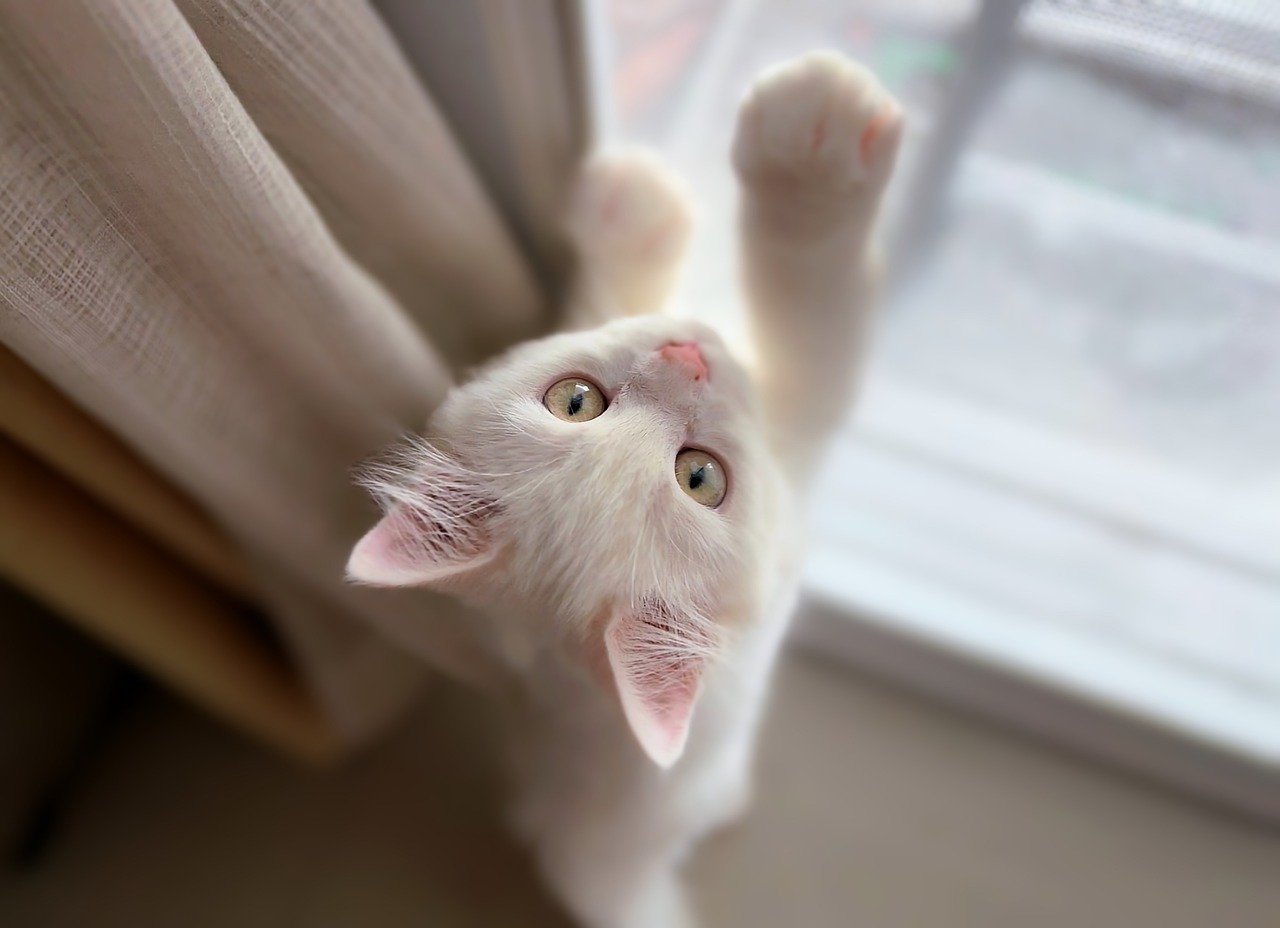
Signs of Aging in Cats
This article explores the various health issues that arise as cats age, providing insights into their symptoms, prevention, and care strategies to enhance their quality of life in their senior years.
Recognizing the early signs of aging in cats is crucial for timely intervention. Just like humans, our feline friends go through various changes as they age, and being aware of these changes can make a significant difference in their overall health and happiness. Common signs often include noticeable shifts in behavior, mobility, and even grooming habits. For instance, have you noticed your cat becoming less playful or more withdrawn? This could be a telltale sign of aging. Cats are masters of disguise when it comes to their health, so it's essential to stay vigilant.
As they grow older, many cats may exhibit a decrease in energy levels. You might find your once sprightly kitty lounging around more often or perhaps hesitating to jump onto their favorite perch. This change in mobility can be subtle at first, but over time, it becomes more pronounced. Additionally, grooming habits may change; an older cat might not groom itself as thoroughly, leading to a dull coat or even mats in their fur. This can be a signal that they are experiencing discomfort or pain, which is often associated with conditions like arthritis.
Another sign to keep an eye on is their eating and drinking habits. Older cats may develop a decreased appetite or become pickier about their food. Changes in thirst levels are also common; some may drink more water due to underlying health issues, while others may drink less. Weight loss or sudden weight gain can also indicate underlying health problems. It's essential to monitor these changes closely, as they can be early indicators of more serious conditions.
In addition to physical changes, behavioral shifts are also important to note. An aging cat might become more irritable or anxious, especially if they are in pain. They may also seek more affection or, conversely, prefer solitude. If you notice your feline friend hiding away more than usual, it might be a sign that they are not feeling their best. Keeping a close eye on their behavior can help you catch any issues early on.
To summarize, here are some key signs of aging in cats:
- Decreased activity levels
- Changes in grooming habits
- Altered eating and drinking patterns
- Behavioral changes
Understanding these signs is vital for pet owners to ensure their cats receive the necessary care and attention as they age. Regular veterinary check-ups can help catch any potential health issues early, allowing for interventions that can significantly improve your cat's quality of life. Remember, your cat's golden years should be filled with love and comfort, and being aware of these signs is the first step in providing them with the best care possible.
Older cats often face a range of health problems, including arthritis, dental disease, and kidney issues. Understanding these conditions helps owners provide better care and seek appropriate veterinary assistance.
Arthritis is a common ailment in older cats, leading to pain and decreased mobility. Identifying symptoms early can help owners manage their cat's discomfort effectively.
Common symptoms of arthritis in cats include limping, difficulty jumping, and changes in grooming behavior. Recognizing these signs helps in seeking timely veterinary care.
There are various treatment options available for managing arthritis in cats, including medications, supplements, and lifestyle changes that can improve their quality of life.
Dental disease is prevalent in aging cats, leading to pain and systemic health issues. Regular dental check-ups can prevent severe complications and maintain overall health.
Chronic kidney disease is a significant concern for older cats, often requiring dietary changes and medical management. Early detection is vital for effective treatment and maintaining a good quality of life.
Symptoms such as increased thirst, frequent urination, and weight loss can indicate kidney disease in cats. Understanding these signs is essential for prompt veterinary intervention.
Management strategies for kidney disease in cats include specialized diets, hydration support, and regular veterinary check-ups to monitor the condition and adjust treatments as needed.
Q: How can I tell if my cat is aging?
A: Look for changes in behavior, mobility, grooming habits, and eating patterns. If you notice any significant changes, consult your veterinarian.
Q: What can I do to help my aging cat?
A: Ensure regular vet check-ups, provide a comfortable living space, and maintain a healthy diet tailored to their age and health needs.
Q: Are there any supplements that can help my senior cat?
A: Yes, supplements like omega-3 fatty acids or glucosamine can support joint health and overall well-being. Always consult your vet before starting any new supplements.
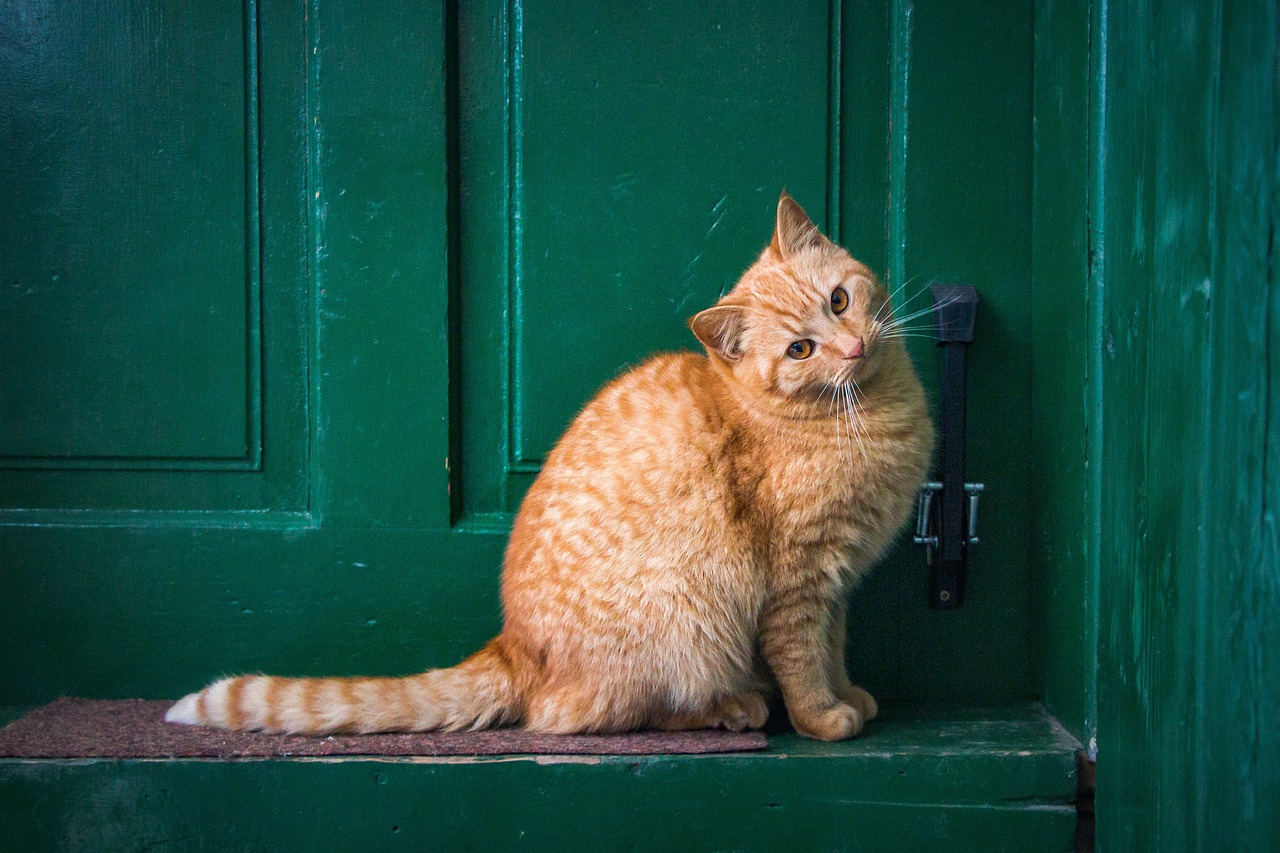
Common Health Issues
This article explores the various health issues that arise as cats age, providing insights into their symptoms, prevention, and care strategies to enhance their quality of life in their senior years.
Recognizing the early signs of aging in cats is crucial for timely intervention. Common signs include changes in behavior, mobility, and grooming habits that indicate potential health issues.
As our feline friends grow older, they often encounter a variety of health challenges that can significantly impact their quality of life. Understanding these health issues is essential for every cat owner. Some of the most prevalent problems include arthritis, dental disease, and kidney disease. Each of these conditions brings its own set of symptoms and management strategies, which we will explore in detail.
For instance, arthritis is a common ailment in senior cats, leading to discomfort and reduced mobility. Imagine your once agile cat, now hesitating to jump onto their favorite sunny spot on the windowsill. This change can be heart-wrenching, but recognizing it early gives you the chance to help them manage their pain effectively.
Another significant issue is dental disease, which affects many older cats. Just like humans, cats can suffer from plaque buildup, gingivitis, and tooth decay, leading to pain and potential systemic health problems. Regular dental check-ups are crucial, as they can help prevent severe complications that might arise from neglecting oral health.
Chronic kidney disease (CKD) is another major concern for aging felines. This condition often sneaks up on owners, as its symptoms can be subtle at first. Increased thirst and urination, coupled with weight loss, can indicate that something is amiss. Early detection is vital, as it allows for dietary changes and medical management that can greatly enhance your cat's quality of life.
In summary, being aware of these common health issues is the first step in ensuring your senior cat remains as healthy and happy as possible. Regular veterinary visits and a keen eye for changes in behavior can make all the difference.
Arthritis is a common ailment in older cats, leading to pain and decreased mobility. Identifying symptoms early can help owners manage their cat's discomfort effectively.
Common symptoms of arthritis in cats include limping, difficulty jumping, and changes in grooming behavior. Recognizing these signs helps in seeking timely veterinary care.
There are various treatment options available for managing arthritis in cats, including medications, supplements, and lifestyle changes that can improve their quality of life.
Dental disease is prevalent in aging cats, leading to pain and systemic health issues. Regular dental check-ups can prevent severe complications and maintain overall health.
Chronic kidney disease is a significant concern for older cats, often requiring dietary changes and medical management. Early detection is vital for effective treatment and maintaining a good quality of life.
Symptoms such as increased thirst, frequent urination, and weight loss can indicate kidney disease in cats. Understanding these signs is essential for prompt veterinary intervention.
Management strategies for kidney disease in cats include specialized diets, hydration support, and regular veterinary check-ups to monitor the condition and adjust treatments as needed.
- What are the signs of aging in cats? Look for changes in behavior, mobility, and grooming habits.
- How can I help my cat with arthritis? Consult your vet for medications and lifestyle changes that can ease their pain.
- Why is dental health important for senior cats? Poor dental health can lead to pain and serious systemic issues.
- What should I do if I suspect my cat has kidney disease? Schedule a veterinary appointment for a thorough examination and possible tests.
Arthritis in Senior Cats
As our beloved feline companions age, they often face a myriad of health challenges, and one of the most common issues is arthritis. This degenerative joint disease can significantly affect a cat's quality of life, leading to pain and reduced mobility. Imagine how it feels for a once spry and playful cat to struggle with simple activities like jumping onto a favorite windowsill or chasing a toy. It's heartbreaking for both the cat and the owner. So, how can we recognize and manage this condition effectively?
Arthritis in cats can be tricky to spot at first. Unlike dogs, who may visibly limp or show signs of discomfort, cats are masters at hiding their pain. However, there are subtle signs that can indicate the presence of arthritis. For instance, you might notice your cat is less enthusiastic about playing or seems to have difficulty getting up after a nap. These changes can be easy to overlook, but they are vital indicators that something may be amiss. Here are some common symptoms to watch for:
- Limping: A cat may favor one leg over another, leading to noticeable limping.
- Difficulty Jumping: Cats may struggle to leap onto furniture or may avoid high places altogether.
- Changes in Grooming: Cats with arthritis might groom themselves less frequently, leading to a less-than-ideal coat.
- Behavioral Changes: Increased irritability or withdrawal from interaction can also signal discomfort.
Recognizing these symptoms early is crucial for effective management. If you suspect your cat may be suffering from arthritis, it's essential to consult with a veterinarian. They can provide a thorough examination and may recommend diagnostic imaging to assess joint health. Once diagnosed, there are various treatment options available to help manage your cat's arthritis.
Treatment for arthritis in cats often involves a multi-faceted approach. Medications such as non-steroidal anti-inflammatory drugs (NSAIDs) can help reduce pain and inflammation. Additionally, supplements like glucosamine and omega-3 fatty acids may support joint health and mobility. It's also important to consider lifestyle changes that can make a significant difference. Providing your cat with a comfortable, soft bed and minimizing the need for jumping can help ease their discomfort.
Moreover, maintaining a healthy weight is crucial. Obesity can exacerbate arthritis symptoms, so ensuring your cat has a balanced diet and regular, gentle exercise can lead to better overall health. Think of it as giving your cat a new lease on life! It's not just about managing pain; it's about enhancing their quality of life and keeping their spirits high.
In conclusion, while arthritis is a common issue in senior cats, it doesn't have to dictate their lives. With early recognition, veterinary guidance, and a tailored treatment plan, your furry friend can continue to enjoy their golden years with comfort and joy. Remember, your cat relies on you to be their advocate, so stay vigilant and proactive about their health!
Q: Can arthritis in cats be cured?
A: Unfortunately, arthritis is a degenerative condition and cannot be cured. However, with proper management and treatment, cats can lead comfortable lives.
Q: How can I help my cat if they have arthritis?
A: Consult your veterinarian for a tailored treatment plan, which may include medications, supplements, and lifestyle adjustments to support your cat's mobility and comfort.
Q: Are there specific breeds more prone to arthritis?
A: While any cat can develop arthritis, larger breeds and those with a genetic predisposition may be more susceptible. Regular check-ups can help catch issues early.
Symptoms of Arthritis
This article explores the various health issues that arise as cats age, providing insights into their symptoms, prevention, and care strategies to enhance their quality of life in their senior years.
Recognizing the early signs of aging in cats is crucial for timely intervention. Common signs include changes in behavior, mobility, and grooming habits that indicate potential health issues.
Older cats often face a range of health problems, including arthritis, dental disease, and kidney issues. Understanding these conditions helps owners provide better care and seek appropriate veterinary assistance.
Arthritis is a common ailment in older cats, leading to pain and decreased mobility. Identifying symptoms early can help owners manage their cat's discomfort effectively.
When it comes to arthritis in cats, the symptoms can often be subtle, making it crucial for cat owners to be observant. One of the most noticeable signs is a change in mobility. If your cat is suddenly hesitant to jump onto their favorite perch or seems to struggle while climbing stairs, it could be a red flag. Additionally, you might notice your feline friend limping or favoring one leg over the other, which can indicate discomfort.
Another significant symptom is a shift in grooming behavior. Cats are known for their meticulous grooming habits, but if you observe that your older cat is grooming less frequently or has unkempt fur, it might be due to pain associated with arthritis. They may also become less active, preferring to lounge around rather than engage in their usual playful antics.
Moreover, changes in social behavior can also be indicative of arthritis. If your once-friendly cat starts to isolate themselves or displays signs of irritability when touched, it’s worth investigating further. Keep an eye out for any signs of discomfort, especially when you attempt to pet them or pick them up.
Here’s a quick summary of the common symptoms of arthritis in cats:
- Difficulty jumping or climbing
- Limping or favoring a leg
- Reduced grooming habits
- Increased irritability or withdrawal
- Changes in activity levels
Being vigilant about these symptoms can make all the difference in ensuring your cat receives the appropriate care in a timely manner. If you suspect your cat may be suffering from arthritis, it's important to consult with your veterinarian to discuss potential treatment options and management strategies.
There are various treatment options available for managing arthritis in cats, including medications, supplements, and lifestyle changes that can improve their quality of life.
Dental disease is prevalent in aging cats, leading to pain and systemic health issues. Regular dental check-ups can prevent severe complications and maintain overall health.
Chronic kidney disease is a significant concern for older cats, often requiring dietary changes and medical management. Early detection is vital for effective treatment and maintaining a good quality of life.
Symptoms such as increased thirst, frequent urination, and weight loss can indicate kidney disease in cats. Understanding these signs is essential for prompt veterinary intervention.
Management strategies for kidney disease in cats include specialized diets, hydration support, and regular veterinary check-ups to monitor the condition and adjust treatments as needed.
Q1: How can I tell if my cat is in pain due to arthritis?
A1: Look for signs such as limping, reluctance to jump, or changes in grooming habits. If your cat seems more withdrawn or irritable, it may also indicate discomfort.
Q2: What are the best treatments for arthritis in cats?
A2: Treatment options include pain relief medications, joint supplements, and lifestyle modifications such as weight management and increased gentle exercise.
Q3: How often should senior cats visit the vet?
A3: Senior cats should ideally have veterinary check-ups at least twice a year to monitor their health and catch any potential issues early.
Treatment Options for Arthritis
When it comes to managing arthritis in our beloved senior cats, there are several treatment options available that can significantly enhance their quality of life. First and foremost, it's essential to consult with a veterinarian who can tailor a treatment plan that suits your cat's specific needs. One of the most common approaches is the use of medications. Non-steroidal anti-inflammatory drugs (NSAIDs) are frequently prescribed to alleviate pain and reduce inflammation. These medications can be a game-changer, allowing your furry friend to move more comfortably.
In addition to medications, supplements can play a vital role in managing arthritis. Ingredients such as glucosamine and chondroitin sulfate are popular choices. These supplements help to support joint health and may even slow the progression of arthritis. However, always consult with your vet before introducing any new supplements to ensure they are safe and appropriate for your cat's condition.
Another effective treatment option is implementing lifestyle changes. This could include providing your cat with a comfortable environment that minimizes stress on their joints. For instance, adding ramps or soft bedding can make it easier for them to navigate their surroundings. Regular, gentle exercise is also crucial. While it might be tempting to let your senior cat lounge around all day, short and frequent play sessions can help maintain their mobility without overexerting them.
For some cats, physical therapy is an excellent option. Just like humans, cats can benefit from targeted exercises and stretches that improve their range of motion and strengthen their muscles. Some veterinary clinics even offer acupuncture or hydrotherapy, which can provide relief and promote healing.
Lastly, it's important to keep an eye on your cat's weight. Obesity can exacerbate arthritis symptoms, so maintaining a healthy weight through a balanced diet and regular activity is essential. Your veterinarian can recommend a suitable diet plan tailored to your cat's needs.
In summary, managing arthritis in senior cats involves a combination of medications, supplements, lifestyle modifications, and possibly alternative therapies. By being proactive and attentive to your cat's needs, you can help ensure they remain comfortable and happy during their golden years.
- How can I tell if my cat has arthritis? Look for signs like limping, difficulty jumping, or changes in grooming habits. If you notice these symptoms, consult your veterinarian.
- Are there any home remedies for arthritis in cats? While some owners explore home remedies, it's crucial to discuss any treatments with your vet to avoid potential harm.
- Can diet affect my cat's arthritis? Yes, a balanced diet can help manage your cat's weight, which is vital for minimizing joint stress.
Dental Health Concerns
As our feline friends age, their dental health often becomes a significant concern. Just like humans, cats can suffer from dental disease, which can lead to painful conditions that affect their overall well-being. It's crucial to understand that dental issues in cats are not just about bad breath or a dirty mouth; they can cause serious health complications if left unchecked. In fact, studies show that nearly 70-80% of cats over the age of three show signs of dental disease. This alarming statistic underscores the importance of regular dental care.
So, what exactly happens to a cat's teeth as they age? Over time, plaque and tartar can build up on their teeth, leading to gingivitis and periodontal disease. These conditions can cause pain and discomfort, making it difficult for your cat to eat. If you notice your cat avoiding food or showing reluctance to chew, it could be a sign that their dental health is deteriorating. In addition, the bacteria from dental disease can enter the bloodstream, potentially affecting vital organs such as the heart and kidneys.
To help maintain your cat's dental health, consider implementing the following practices:
- Regular Veterinary Check-ups: Schedule annual dental check-ups with your veterinarian. They can perform professional cleanings and identify any early signs of dental disease.
- At-Home Dental Care: Brush your cat's teeth regularly with pet-safe toothpaste. If brushing seems impossible, dental treats and toys can also help reduce plaque buildup.
- Watch for Signs: Be vigilant for any signs of dental discomfort, such as drooling, pawing at the mouth, or changes in eating habits.
By prioritizing dental health, you can significantly enhance your cat's quality of life in their senior years. Remember, prevention is always better than cure, and a little effort in maintaining their dental hygiene can go a long way in ensuring your furry companion remains happy and healthy.
Q: How often should I take my cat for dental check-ups?
A: It's recommended to schedule dental check-ups at least once a year, but older cats may benefit from more frequent visits.
Q: Can I use human toothpaste to brush my cat's teeth?
A: No, human toothpaste can be harmful to cats. Always use toothpaste specifically designed for pets.
Q: What are the signs that my cat might have dental disease?
A: Common signs include bad breath, difficulty eating, swollen gums, and excessive drooling.
Q: Are dental treats effective for maintaining my cat's dental health?
A: Yes, dental treats can help reduce plaque and tartar buildup, but they should complement regular brushing and veterinary check-ups.
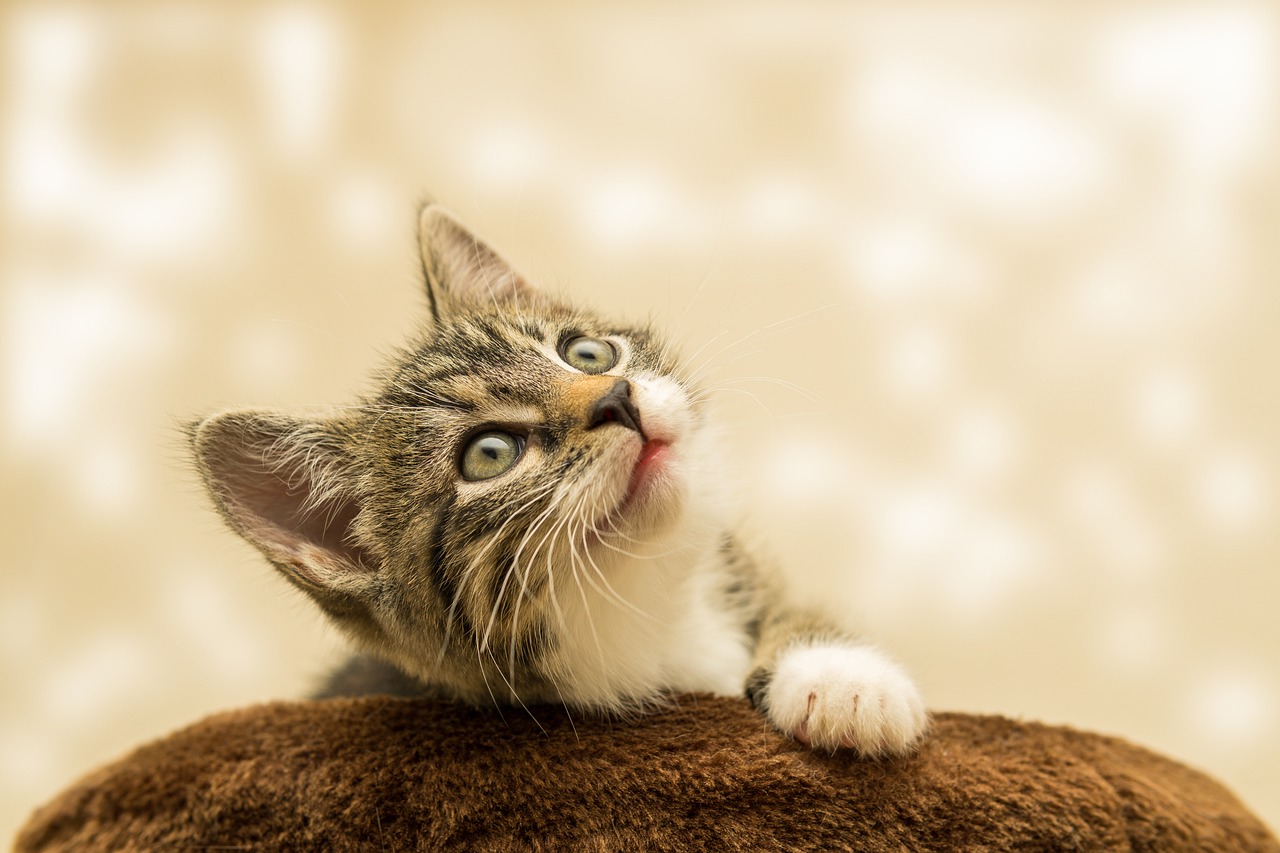
Kidney Disease in Cats
Chronic kidney disease (CKD) is a common and serious health issue that affects many older cats. As our feline friends age, their kidneys may become less efficient at filtering waste from the blood, leading to a buildup of toxins in the body. This condition can be insidious, often developing slowly over time, making it essential for cat owners to be vigilant and proactive in monitoring their pets' health. The consequences of kidney disease can be severe, but with early detection and proper management, many cats can maintain a good quality of life.
One of the most challenging aspects of CKD is that the symptoms can be quite subtle initially. Owners might notice their cat drinking more water than usual or urinating more frequently. These signs can easily be mistaken for normal aging behaviors, but they are often indicative of underlying kidney problems. Other symptoms may include:
- Weight loss: Even with a healthy appetite, cats may lose weight due to the body's inability to process nutrients effectively.
- Decreased appetite: Some cats may eat less or show disinterest in food, which can further exacerbate weight loss.
- Vomiting: Nausea can occur as toxins build up in the bloodstream, leading to occasional vomiting.
- Lethargy: A noticeable decrease in energy levels can indicate that your cat is not feeling well.
Recognizing these signs early can be the key to timely veterinary intervention. If you suspect your cat may be suffering from kidney disease, it’s crucial to consult with a veterinarian as soon as possible. They can perform blood tests and urinalysis to assess kidney function and determine the best course of action.
Managing kidney disease in cats often involves a multi-faceted approach. Here are some common strategies that veterinarians may recommend:
| Management Strategy | Description |
|---|---|
| Specialized Diet | Feeding a diet formulated for kidney health can help reduce the workload on the kidneys and manage protein levels. |
| Hydration Support | Encouraging water intake through wet food or water fountains can help keep your cat hydrated and support kidney function. |
| Regular Vet Check-ups | Frequent monitoring of kidney function allows for adjustments in treatment and early detection of any complications. |
In addition to these strategies, some cats may also benefit from medications that help manage symptoms or address specific issues related to kidney disease. For instance, phosphate binders can help control phosphorus levels in the blood, while anti-nausea medications can improve appetite and reduce vomiting.
Ultimately, the goal of managing kidney disease is to enhance your cat's quality of life. Regular veterinary visits, a tailored diet, and attentive home care can make a significant difference. Remember, your cat may not be able to tell you when they’re feeling unwell, so being proactive in their care is essential.
1. What are the early signs of kidney disease in cats?
Early signs may include increased thirst and urination, weight loss, decreased appetite, and lethargy. If you notice these symptoms, consult your veterinarian.
2. Can kidney disease be cured?
While chronic kidney disease cannot be cured, it can often be managed effectively with diet, hydration, and medications, allowing your cat to live a comfortable life.
3. How often should I take my cat to the vet if they have kidney disease?
Regular check-ups are crucial. Depending on the severity of the disease, your veterinarian may recommend visits every 3 to 6 months, or even more frequently for monitoring.
4. Is there a specific diet for cats with kidney disease?
Yes, there are specialized diets designed to support kidney function by reducing protein and phosphorus levels. Your veterinarian can recommend the best diet for your cat.
Recognizing Kidney Disease
Recognizing kidney disease in your feline friend is akin to being a detective in your own home. You need to be observant and aware of the subtle changes in your cat's behavior and physical condition. Chronic kidney disease (CKD) often develops gradually, which means that early signs can be easily overlooked. However, being proactive can make all the difference in your cat's health and happiness.
One of the most telling signs of kidney disease is an increase in thirst. If you notice your cat drinking more water than usual, it could be a red flag. Coupled with this, frequent urination is another symptom that should not be ignored. You might find yourself cleaning the litter box more often, and if your cat is urinating outside the box, it could indicate discomfort or urgency related to kidney issues.
Weight loss is another critical indicator. If your cat seems to be losing weight despite maintaining a normal appetite, this could signal that their body is struggling to process nutrients effectively. Additionally, keep an eye out for any changes in grooming behavior. Cats are typically meticulous groomers, so if you observe your cat neglecting their grooming routine or developing a scruffy coat, it could be a sign of underlying health issues, including kidney disease.
Other symptoms to be vigilant about include:
- Vomiting: Frequent vomiting can indicate that your cat's kidneys are not functioning properly.
- Bad Breath: A noticeable ammonia smell on your cat's breath may suggest kidney problems.
- Lethargy: If your usually playful cat seems more tired than usual or is sleeping excessively, it may be a cause for concern.
Understanding these signs is essential for prompt veterinary intervention. If you notice any of these symptoms, it’s crucial to consult with your veterinarian as soon as possible. Early detection can lead to better management strategies, ultimately enhancing your cat's quality of life.
Q: What should I do if I suspect my cat has kidney disease?
A: If you suspect your cat has kidney disease, schedule an appointment with your veterinarian immediately. They will conduct tests to confirm the diagnosis and discuss treatment options with you.
Q: Can kidney disease be cured?
A: Unfortunately, chronic kidney disease cannot be cured, but it can be managed effectively with the right treatment plan, which may include dietary changes and medications.
Q: How can I help my cat stay hydrated?
A: Encourage hydration by providing fresh water daily, using water fountains, and offering wet cat food, which contains more moisture than dry food.
Managing Kidney Disease
Managing kidney disease in cats is a multifaceted approach that requires the cooperation of both the pet owner and the veterinarian. Once your furry friend has been diagnosed with chronic kidney disease (CKD), it’s essential to take proactive steps to ensure they maintain a good quality of life. The management strategies can be tailored based on the severity of the disease and the specific needs of your cat.
One of the primary strategies involves dietary management. Cats with kidney disease often benefit from a special diet that is low in protein but high in quality, as this can help reduce the workload on their kidneys. Additionally, these diets are typically lower in phosphorus and sodium, which are crucial for kidney health. It’s important to consult your veterinarian to find a diet that suits your cat’s specific condition. Some common dietary recommendations include:
- High-quality protein sources
- Increased moisture content, which can be achieved through wet food or adding water to dry food
- Low phosphorus levels to minimize kidney strain
Another critical aspect of managing kidney disease is ensuring your cat stays hydrated. Dehydration can exacerbate kidney issues, so it's vital to encourage your cat to drink plenty of water. You might consider using a pet water fountain, as many cats are more inclined to drink running water. Additionally, incorporating wet food into their diet can help boost their fluid intake.
Regular veterinary check-ups are essential for monitoring your cat's kidney function and overall health. These visits can include blood tests and urinalysis to track the progression of the disease and adjust treatment plans accordingly. Your vet may also recommend medications to help manage symptoms or other conditions that may arise due to kidney disease, such as high blood pressure or anemia.
Moreover, keeping an eye on your cat's behavior and physical condition is crucial. Any sudden changes, such as increased thirst, changes in appetite, or unusual lethargy, should be promptly reported to your veterinarian. Early intervention can make a significant difference in managing kidney disease effectively.
In summary, managing kidney disease in cats involves a combination of a specialized diet, ensuring hydration, regular veterinary visits, and staying vigilant about your cat's health. By taking these steps, you can help your feline friend lead a more comfortable and fulfilling life, even in the face of chronic kidney disease.
Q: What are the early signs of kidney disease in cats?
A: Early signs can include increased thirst, frequent urination, weight loss, and changes in appetite. If you notice these symptoms, consult your veterinarian.
Q: Can kidney disease be cured?
A: Unfortunately, chronic kidney disease is not curable, but it can be managed with proper care and treatment to improve your cat's quality of life.
Q: How often should my cat see the vet if they have kidney disease?
A: Regular check-ups are essential, typically every 6 months, but your veterinarian may recommend more frequent visits based on your cat's condition.
Q: Is it safe to give my cat supplements for kidney health?
A: Always consult your veterinarian before adding any supplements to your cat's diet, as some may interact with medications or worsen their condition.
Frequently Asked Questions
-
What are the early signs of aging in cats?
As our furry friends age, it's essential to keep an eye out for early signs that may indicate they need a little extra care. Common signs include changes in behavior, such as increased irritability or withdrawal, decreased mobility, like difficulty jumping onto their favorite spots, and alterations in grooming habits, where they might not groom themselves as thoroughly as before. Recognizing these signs early can lead to timely veterinary intervention, which can significantly enhance their quality of life.
-
How can I tell if my cat has arthritis?
Arthritis can sneak up on our beloved cats, and spotting it early is crucial. Look for symptoms like limping, trouble jumping or climbing, and a noticeable change in their grooming behavior—if they seem to be ignoring certain areas of their body, it could indicate discomfort. If your cat is showing these signs, it’s a good idea to consult with your vet for a proper diagnosis and treatment options.
-
What are the treatment options for arthritis in cats?
If your cat is diagnosed with arthritis, don’t worry—there are several ways to help manage their pain and improve their mobility. Treatment options include medications prescribed by your vet, nutritional supplements like Omega-3 fatty acids, and lifestyle changes such as weight management and providing soft bedding. Regular gentle exercise can also work wonders in keeping their joints healthy and mobile.
-
How can I maintain my cat's dental health as they age?
Dental health is a big deal for aging cats! Regular dental check-ups are key to preventing severe complications. You can also help by providing dental treats and toys designed to reduce plaque buildup. Additionally, consider incorporating dental care into their routine at home, like brushing their teeth if they're comfortable with it. Keeping their mouth healthy will not only prevent pain but also support their overall health.
-
What should I know about kidney disease in older cats?
Chronic kidney disease is a prevalent concern in senior cats, and understanding it can make a world of difference. Early signs include increased thirst, frequent urination, and noticeable weight loss. If you see these symptoms, it’s crucial to visit your vet for early detection and intervention. Managing kidney disease often involves dietary changes, hydration support, and regular vet check-ups to monitor their condition.
-
How can I manage my cat's kidney disease?
Managing kidney disease in cats requires a proactive approach. Specialized diets that are low in protein and phosphorus can help ease the burden on their kidneys. Ensuring they have access to fresh water at all times is vital for hydration. Regular veterinary visits will allow for monitoring and adjustments to their treatment plan as needed. Remember, you’re not alone in this—your vet can guide you through each step!



